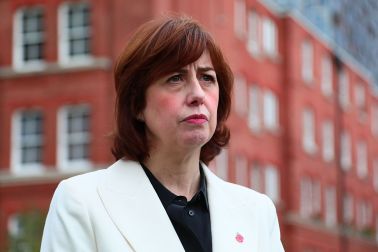Paradoxical I know, but I must first explain that there’s little point in my writing this, and somebody else should.
Paradoxical I know, but I must first explain that there’s little point in my writing this, and somebody else should.
The column it’s futile for me to write sounds a warning about the mess we’re making of MPs’ pay and allowances; and the danger not only that we discourage capable men and women from considering a political career, but that we relegate the status of politics and its practitioners in a way that may reverberate through generations to come. The Independent Parliamentary Standards Authority (IPSA), paralysed by the hysteria over MPs’ expenses that gave birth to it, is behaving with bone-headed insensitivity.
So why am I the wrong man to write this? Because I was an MP. Readers refuse to accept that I’m a disinterested party. Every time, in the Times, that I’ve so much as hinted that the popular indignation engulfing Westminster before the last election was an overreaction to a real but complicatedly driven abuse, I’ve been met (in online readers’ commentaries) with the sneer that I would say that, wouldn’t I, former Tory MP that I am? Even when on the radio I’ve stuck up for former Labour members like Dr Ian Gibson, hounded from politics because he let his daughter share his flat, the callers’ responses have been the same: ‘Snouts in the trough… you MPs are all on the same side…’
Well I’m not an MP, and haven’t been for a quarter of a century. The ruses some modern parliamentarians disgracefully exploited to inflate their expenses weren’t even available in 1979. As a journalist now my interest lies in joining the MP-bashing bandwagon. No matter that I’m familiar with the brutal demand that working permanently in two different places puts on personal and family life: my familiarity is taken to disqualify me from comment. That spittle-flecked journalism has its own vested interest in sensationalising the problem of MPs’ expenses hardly seems to occur to many readers.
Rant over. Now to the facts. IPSA is careering stupidly out of control. Many MPs, particularly new young members, are close to despair, but dare not complain publicly because of the witch-hunting atmosphere that still prevails. Three problems, in particular, combine to oppress them.
Salary (some £65,000) is really the root of it and always has been. The salary of IPSA’s own director of communications (leading a team of three communications staff!) is more than £80,000; and in my present trade it would not be seriously argued that an industry ceiling of some £65,000 a year would be enough to retain the best. How some of my colleagues have had the effrontery to pander to the populism that accuses MPs of hypocrisy because £65,000 is much higher than the national average wage, I’m at a loss to explain. However, there’s no arguing with the politics of austerity, and I accept (as do MPs) that now is no time for a salary increase. Every generation is keen to pass this parcel to the next — or offload it onto the related issue of expenses, which can, and did, relieve MPs from the pinch imposed by salary.
And it is here, under IPSA’s new expenses regime, that the pinch is only being intensified. Take travel, and housing. The rules on travel are being interpreted in an Alice through the Looking Glass way. One small example: the rule that an MP can only claim travel costs between Westminster and their constituency is interpreted as meaning that a three-point journey to the constituency is wholly ineligible. MPs may claim no part of a journey from Westminster to (say) Cheshire, on family business, then across to the constituency in (say) Newcastle. They can only claim if they return first to Westminster and start again. Trivial? Yes, but illustrative of IPSA’s mindless approach: clearly a journey that starts in Westminster and ends in the constituency should be claimable (regardless of the chosen trajectory) on a mileage representing the shortest distance between those two points, this being the displacement caused by parliamentary duties.
Housing is an even bigger mess. The rules on when you may or may not claim on a house or flat big enough for your children (depending on the age of the children) are beyond farce. For most MPs the possibility of travelling with the family to and from the constituency, as so many would do in my day, has disappeared. Instead members must choose between two types of life: parking your family permanently in the constituency and sleeping in digs in London; or living in London with your family, and making dashes to your constituency where you overnight in a cheap flat or room. The lives, meanwhile, of those many MPs whose constituencies are not quite far enough from London to claim any housing costs at all have become exceptionally difficult.
Members who wish to discuss difficulties with one of IPSA’s approximately 80 staff are told to send emails instead — with responses delayed by up to three weeks. The misery this is creating is a serious problem for morale among MPs, quite apart from any longer-term implications for the role and status of the 21st-century British parliamentarian. The Commons returns to its Westminster duties this autumn more troubled at the personal and practical level than anything in the public print has suggested. In fact few raise the issue at all. MPs don’t dare. No party leader would be so foolish.
It is left, I would argue, to Fleet Street’s Westminster and Whitehall journalists and commentators and to political scientists. They talk to MPs. They know it’s a big problem. Yet few have entered more than footnotes acknowledging it. Why are they silent?







Comments